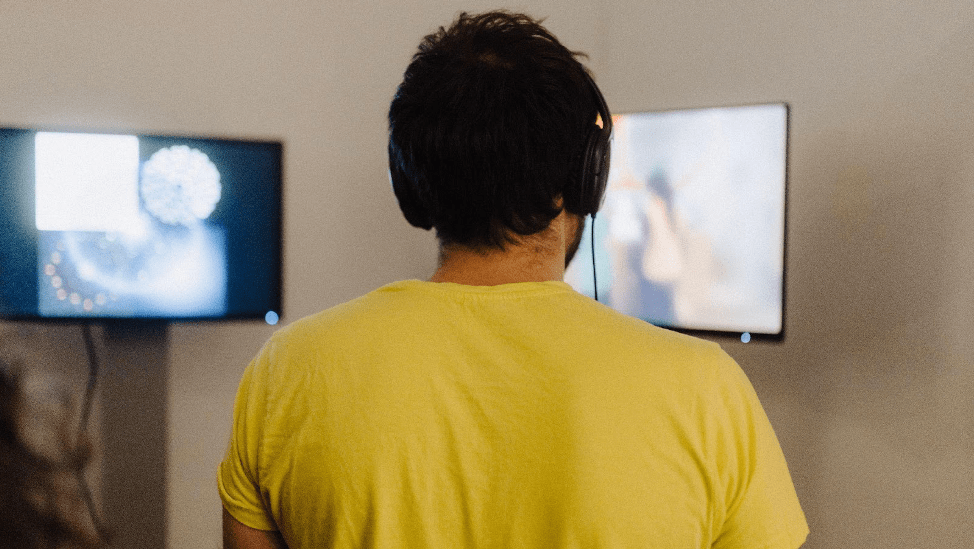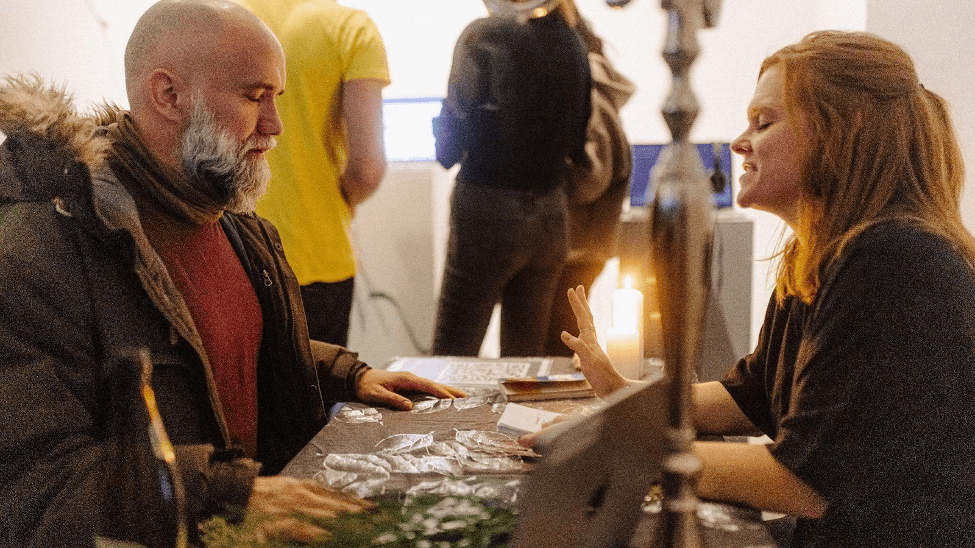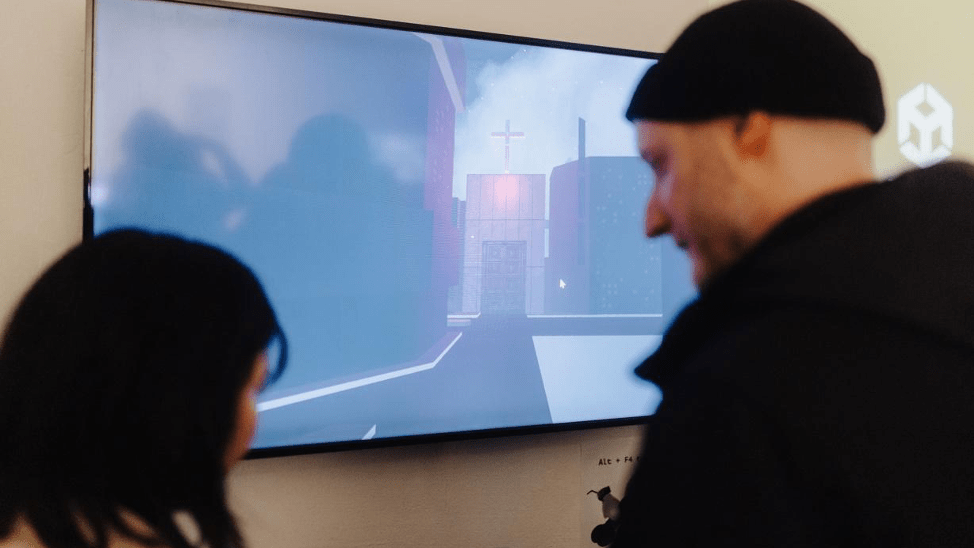This January the Interactive Media Arts low residency program (IMA Low Res) showcased work from their two-week intensive at NYU Berlin. The program, jointly offered by NYU Tisch School of the Arts and NYU Shanghai, gives students the opportunity to complete a master’s degree in one year. Interspersed with online learning are three low-residency sessions at NYU campuses in New York City, Shanghai, and Berlin. Show & Tell was devised by students and instructors from classes during NYU Berlin’s January session: Civic Ecologies, Virtual Worlds, and Radical Networks.
Civic Ecologies with Jamie Allen
IMA Low Res students in the Civic Ecologies class used various mediums to create daily rituals. Their results were a diverse group of works including documentaries, mobile apps, short films, tarot readings, written instructions, and more.
Berlin Ecological Tarot
Breadcrumbs
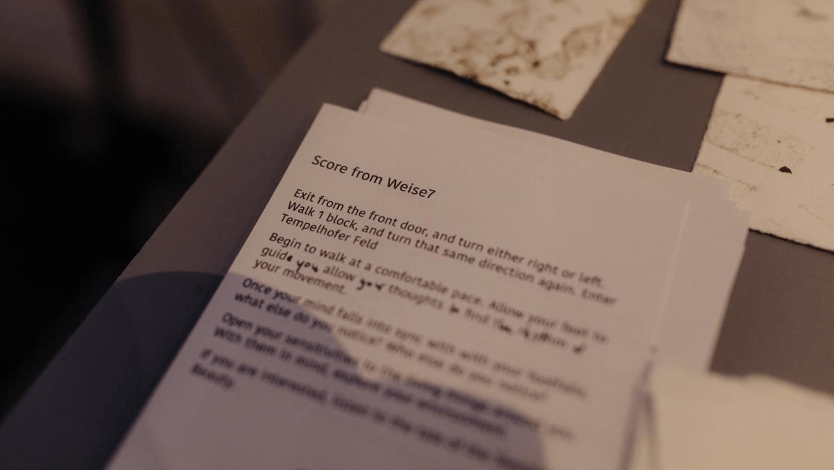
Through video and a series of location-based scores, Jamie McCoy’s Breadcrumbs considers the ways in which passing through a city connects inhabitants to each other and their surroundings.
Virtual Worlds with Pierre Depaz
Students from Virtual Worlds worked in groups to create virtual worlds and games using the Unity game engine. Visitors experienced these worlds projected on a large screen as well as by immersing themselves in constructed spaces.
Adam Diggler’s Grave
Journey to Mars
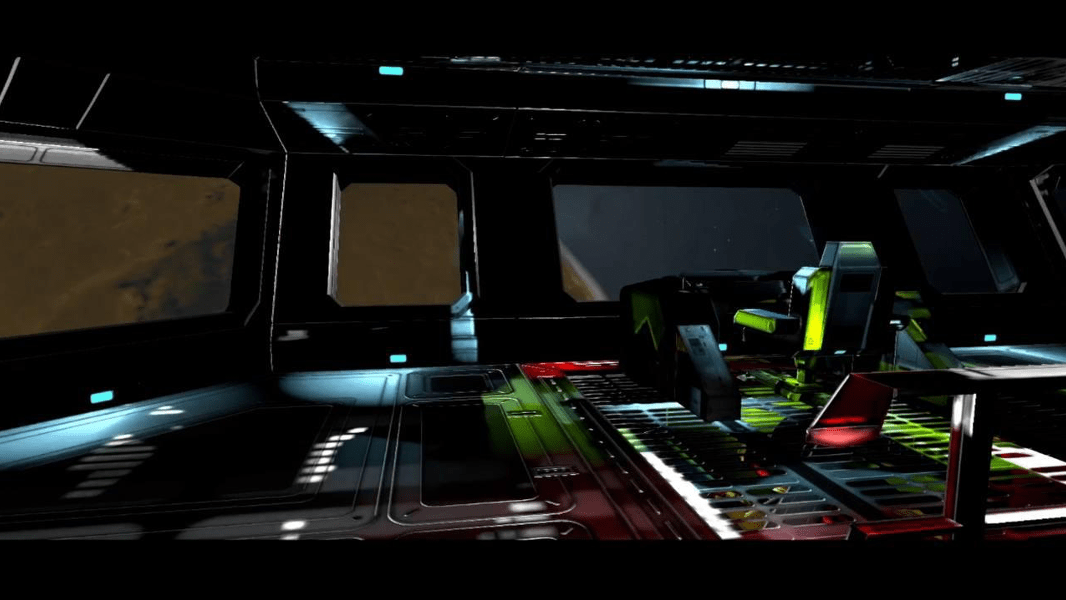
Yunshan Jiang and Siri Zhao’s Journey to Mars. Visitors witness their created world: 500 years from now people can easily transport between the uninhabitable Earth and Mars.
Radical Networks with Sarah Grant
Using Raspberry Pis, which are single board computers, students in Radical Networks created various interactive works related to networking technologies. Works ranged from public Wi-Fi networks where users could only access a 2012 version of the web, filtered and manipulated unencrypted government sites, and playful explorations of the physicality of signals emitted through connected devices.
PESCA
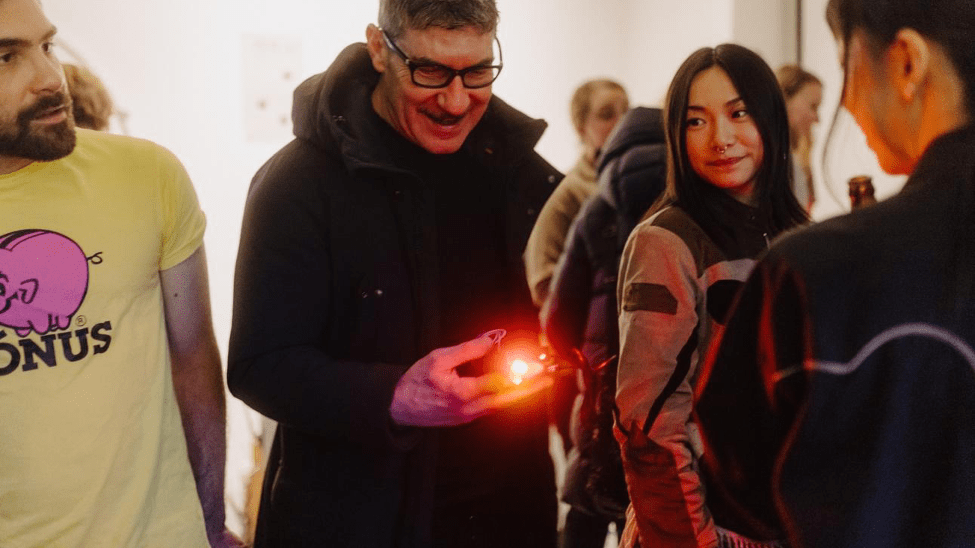
Visitors play with Kat Park’s PESCA, a portable mesh network. An LED signals when another node has wandered too far away. The work was programmed with Python and is made with Raspberry Pis, battery packs, Wi-Fi antennae, and LEDs.
Photography by Brian Ho and Renton Ling
